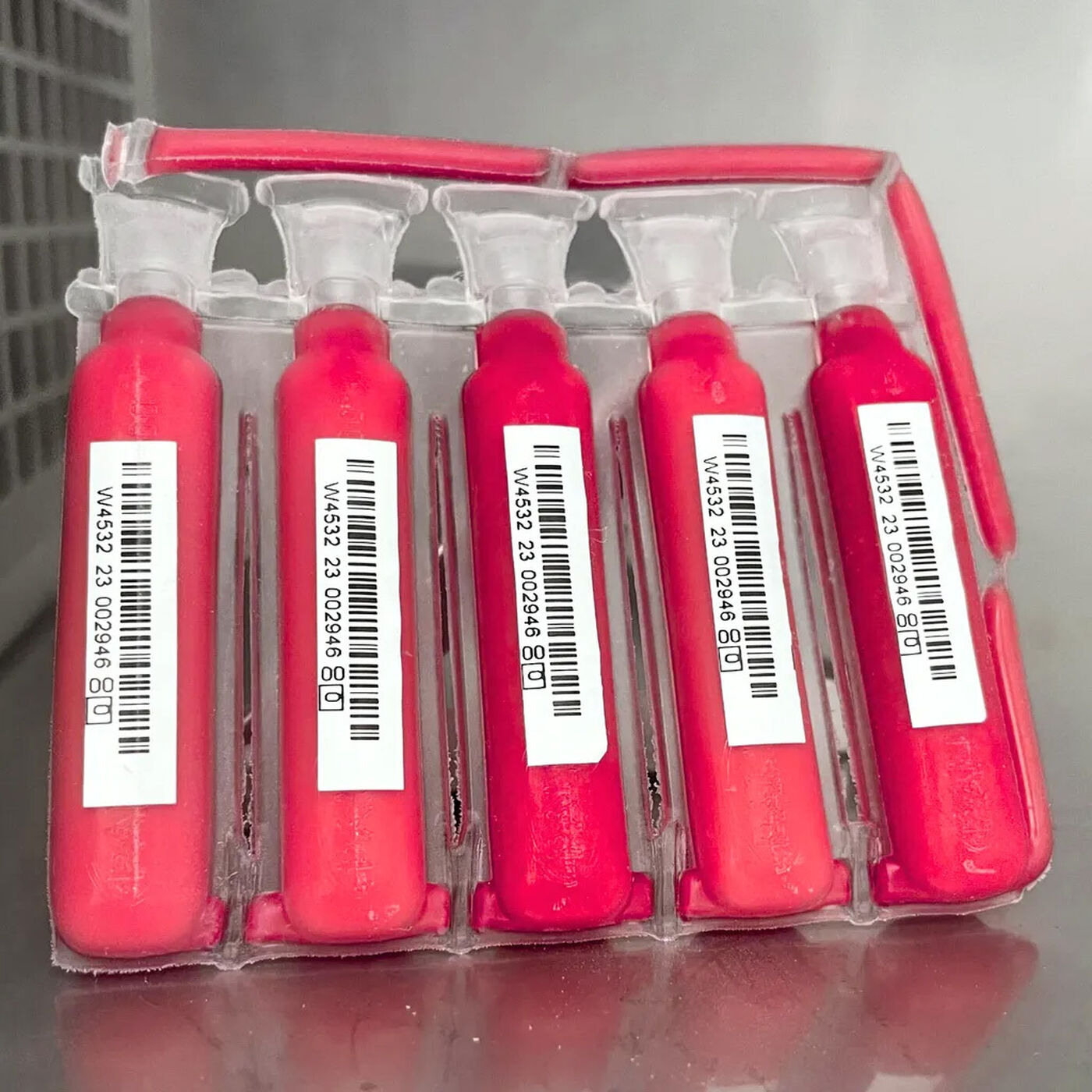Cord Blood Banking with Americord
Cord blood banking is the safe, painless way to collect, process, and store your newborn’s umbilical cord stem cells. After your baby is born, whether you choose delayed cord clamping or not, there's always leftover blood in the umbilical cord. This is cord blood.
We've consistently set the highest industry standards through scientific innovation, exceptional customer service, and complete transparency. The result is best-in-class stem cell banking that's more personalized and more human.

Cord Blood Storage & Processing
Our proprietary 5-compartment storage bag is designed to evenly distribute your baby's cord blood stem cells. This innovative method provides greater flexibility, allowing for the precise number of stem cells to be used for a specific treatment, and offering more options for multiple future treatments.
Americord’s CryoMaxx™ Cord Blood Processing maximizes the potential of your baby’s cord blood. This process, based on the Rubenstein method, manually isolates a higher yield of hematopoietic stem cells (HSCs) compared to automated processing. These HSCs are then combined with a cryoprotectant to safeguard them during controlled-rate freezing, ensuring their long-term viability for your family.

How Does Cord Blood Banking Work?
Hello, Baby!
Collection
Transportation
Lab Processing
Storage
Preserving
Be Prepared for the Unknown.
You only have one chance to preserve your baby’s life-saving stem cells, and that’s the day they are born. Secure your family’s health by enrolling in stem cell banking today.

More About Cord Blood Banking

Can Cord Blood Be Used for Siblings?

How Much Does Cord Blood Banking Cost?

Is Cord Blood Banking Worth It
Questions About Cord Blood
Cord blood banking is a decision that many expectant parents consider, and it's important to weigh the potential benefits against the associated costs and uncertainties. The worth of cord blood banking depends on various factors, including your family's medical history, your values, and your future healthcare goals.
Cord blood banking is an excellent choice for families looking to be at the cutting edge of medical progress, as it enables them to proactively store a potential treatment option.
Cord blood banking is primarily used for storing the stem cells found in a newborn's umbilical cord blood. These stem cells have unique properties that make them valuable for medical purposes. Today, the stored cord blood can be used for 80 FDA-Approved treatments for illnesses and diseases ranging from Sickle Cell Disease to Leukemias. There are also hundreds of clinical trials ongoing each year.
Cord blood stem cells are currently FDA-approved to treat over 80 conditions and diseases. This includes cancers, blood disorders, immune disorders, and metabolic disorders. View the full list here.
At Americord, we understand that cost is an important consideration when making decisions about cord blood banking. Our pricing structure is designed to provide flexibility and affordability to our clients while ensuring the highest standards of service and quality. The cost of cord blood banking at Americord includes collection, processing, and storage. The total price starts at $3,799 and payment plans start as low as $131/mo.
Learn more about the cost of cord blood banking in this article: How Much Does Cord Blood Banking Cost?
Your baby's cord blood holds the potential to benefit both immediate family members, such as parents and siblings, as well as second-degree family members, like aunts, uncles, and grandparents. This means that not only can it provide essential support to your closest loved ones, but also offer a potential valuable resource for relatives beyond your immediate family circle.
Cord blood can be stored for an extended duration, making it a valuable asset for your family's future health needs. The preservation of cord blood is typically intended for the long term, and it can be stored for decades or even longer. Americord offers cord blood storage from 20 years to lifetime (78 years). This extended storage period ensures that the stem cells remain viable and effective for potential treatments, should the need arise in the years to come.


